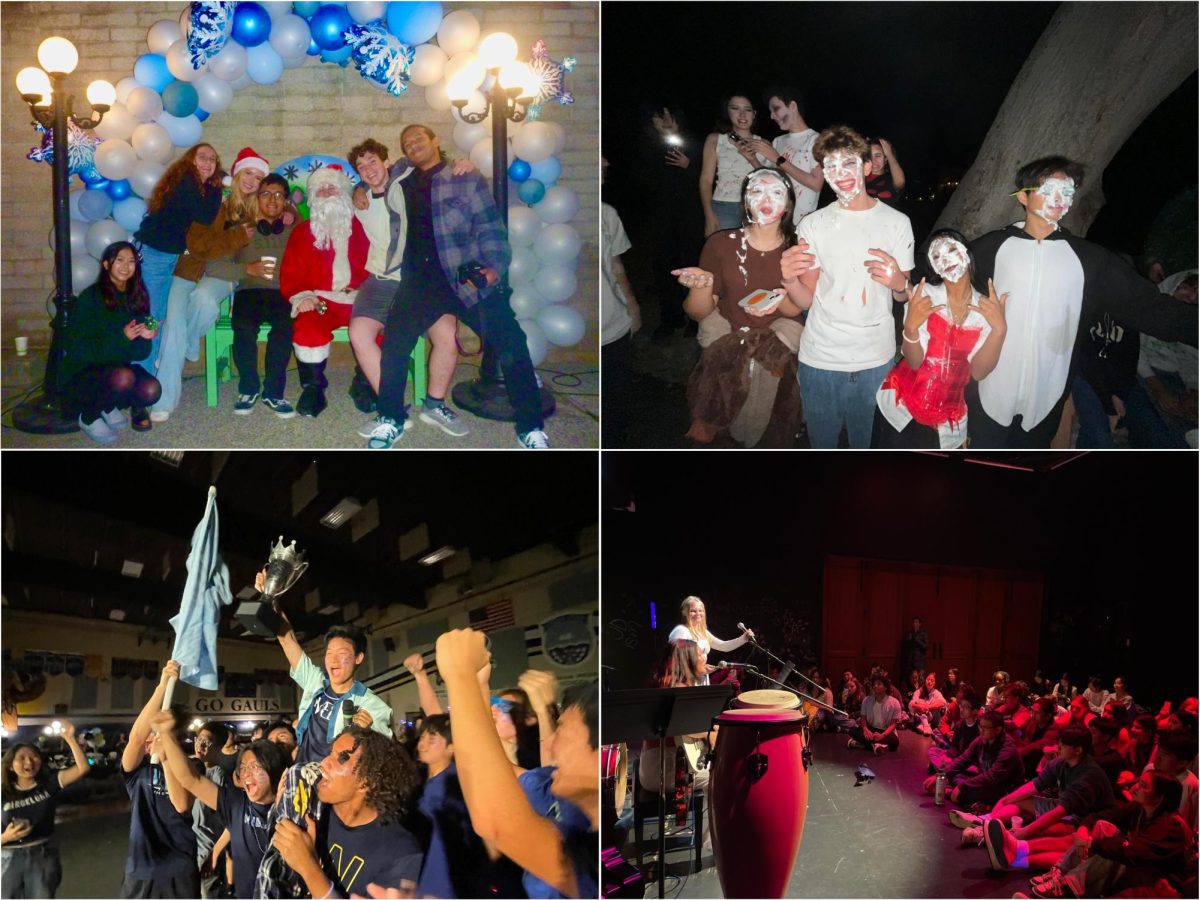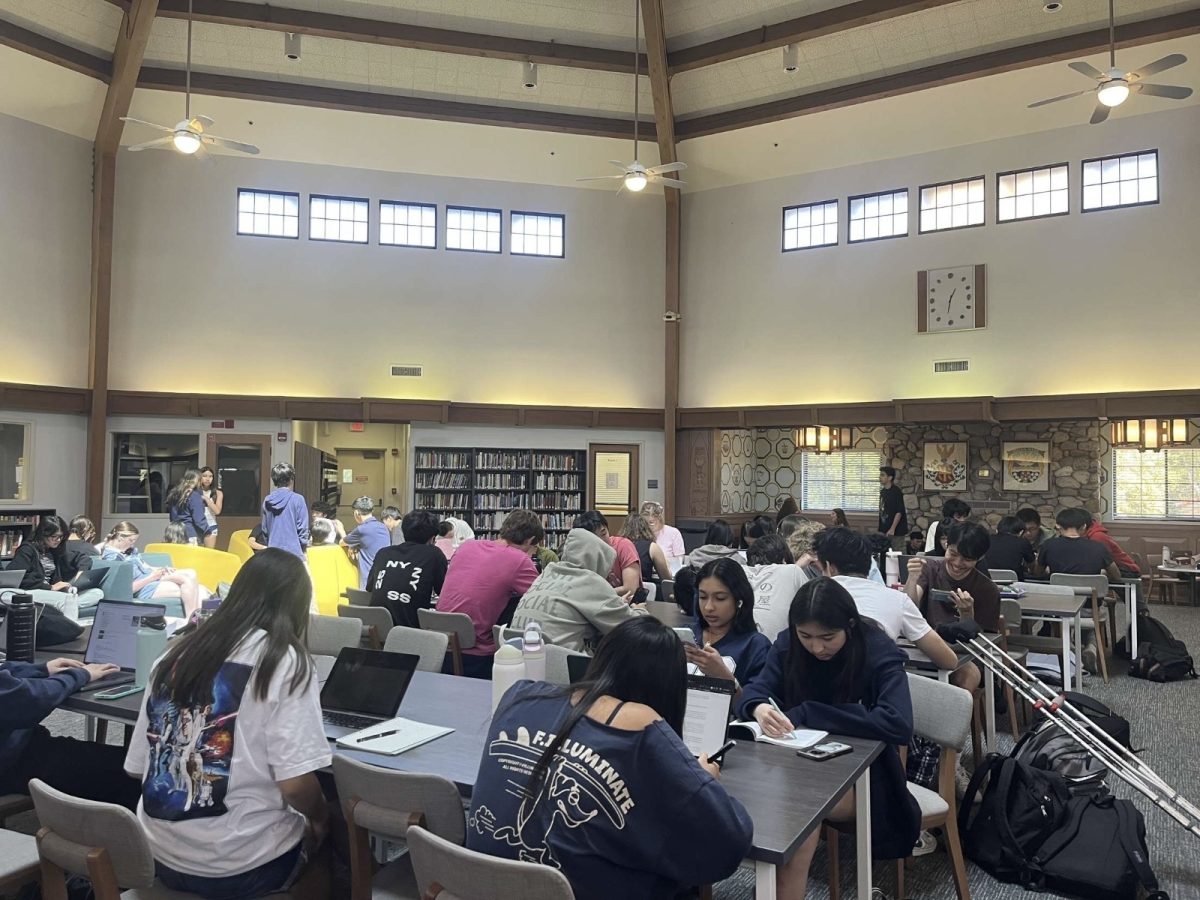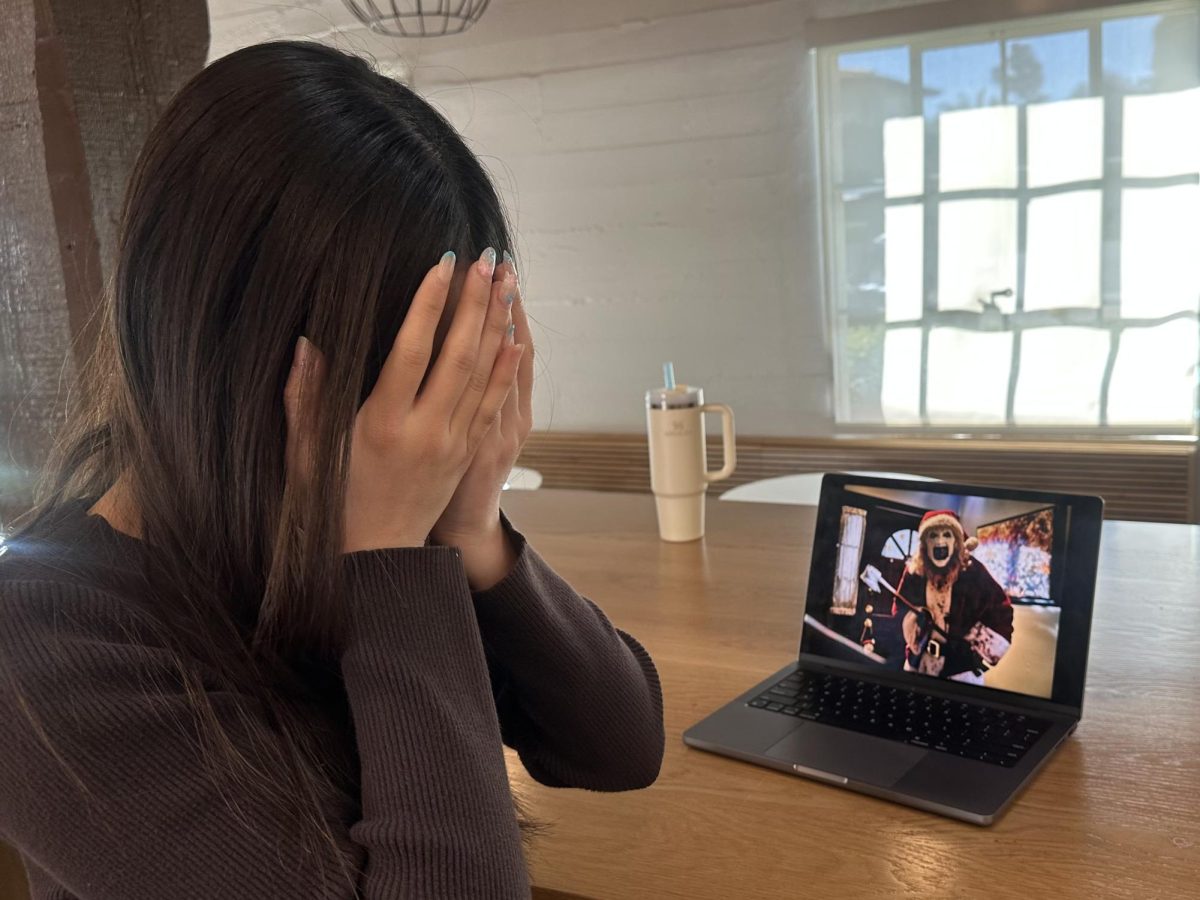After staring at your Spanish textbook for too long, you start having dry eyes and a stiff neck, unable to concentrate on the seemingly endless vocabulary list. During the process of practicing boring dialogues and memorizing difficult grammar rules, are you really immersing yourself in the language and culture?
Language is a tool, a key to another lifestyle full of rich culture and traditions. When Webb students only view their foreign language class as a prerequisite to get into college, their perspective becomes severely limited. Moreover, they miss out on the real fun of learning a new language and often fail to achieve adequate fluency in daily life. Here are some exciting ways to learn a foreign language and ultimately unlock the door to its rich cultural background.
These are some recommendations from Sonsoles Cardalliaguet, world languages faculty, Estaban Vazquez, world languages department faculty, Jackie Shugert (‘24), and Taya Sibichenkova (‘24).
First: TV Shows
Watching TV shows is a simple yet underrated strategy. It allows you to spend more time with the language and subconsciously associate the language with entertainment. Some might worry, however, that they will not be able to understand all the content in the drama. So, students in more beginner levels can try watching shows with English (native) subtitles or relatively cliché plots, so it would be easier to understand. Below are some recommendations of classic TV shows in each language that you can watch on various platforms.
Beginner level:
-Spanish: Extra (YouTube)
-Mandarin: Well Intended Love (Netflix)
Intermediate Level:
-Spanish: Teresa (YouTube)
-Spanish: Amores Verdaderos (Apple TV)
-Mandarin: Ode to Joy (YouTube)
-French: Lupin (Amazon Prime)
Advanced Level:
-Spanish: Gran Hotel (Pantaya)
-Mandarin: Empresses in the Palace (YouTube)
-Mandarin: The Story of Minglan (The Rebel)
-Mandarin: The Rebel (YouTube)
-French: Coco Avant Chanel (Disney+)
-French: Dix Pour Cent (Netflix)
Second: Podcasts
“To me, the best way to learn a foreign language is the ‘full immersion’ process…listening to the news in Spanish or in French,” said Señor Vazquez.
Here are some great podcasts available for you to listen to that can greatly increase your comprehension skills.
-Slow News in Spanish (Google)
-Notes in Spanish (Ximalaya)
-Slow News in French (Google)
-French 101 (YouTube)
-Beartalk (Chinese)
-Behind the Headlines with Wentao (Chinese)
Third: Music
After an exhausting day, you return home and turn on the music, fully submitting yourself to the unique and intricate emotions it conveys. As you close your eyes, you start to hum the lyrics of the song and submerge into the melody.
Appreciating foreign artists is also a fun way to immerse in the language, as this unique experience of emotions and repetitions drastically speeds up language acquisition; memorizing the lyrics of the song could not only help you better understand its context but also improve your pronunciation.
Artists/Bands:
- Chinese singers
-Zhoushen
-Na Ying
-Jay Chou
-Easan Chan - French singers
-Angèle
-Camélia Jordana - Spanish singers
-Vicente Fernandez
-Selena Quintanilla- Perez
-Juan Gabriel
-Los Bukis
-Romeo Santos
Songs:
- Mandarin
-大鱼 by Zhoushen
-贝加尔湖畔 by Lijian
-告白气球 by Jay Chow
-有点甜 by Silence Wang
- French
-Je te laisserai des mots
-La Mer
-Dernière danse
-La Vie en Rose
-La Java Bleue
- Spanish
-La llorona
-Waka waka
-Cielito Lindo
-Bailando
Fourth: Stories/Books
Reading in another language can be very powerful. At first, the words might seem gibberish, but you will gradually build vocabulary and learn native phrases. If you persist in this habit, you will be generously rewarded.
Below are some simple book options that you can check out. You could also try reading your favorite book series in the translated language, such as Harry Potter (might be tough, but a fun challenge!).
Stories:
–Epopia.com (French story tales)
–TPRS Ebooks (Spanish)
-France-Amérique (French Magazine)
Books:
- Chinese
-To Live
-Romance of the Three Kingdoms
-The Three-Body Problem
-Dream of the Red Chamber
- Spanish
-Don Quixote
-One Hundred Years of Solitude
-The Alchemist
-Love in the Time of Cholera
- French
-The Little Prince
-The Stranger
-Madame Bovary
-The Count of Monte Cristo
Fifth: Speaking with Native Speakers
Communicating with native speakers is both efficient and necessary for one to grasp the essence of a foreign language. Do not be embarrassed to make grammar mistakes or misuse words; the key to successful communication is getting your main idea across. If you continue having conversations with native speakers, your speaking skills will drastically improve, and you will perform well in your language classes.
“Trying to speak as much as possible, because then it becomes second nature…they usually say that when you understand a joke in a foreign language, that’s when you reach a good level of fluency,” said Señor Vazquez.









